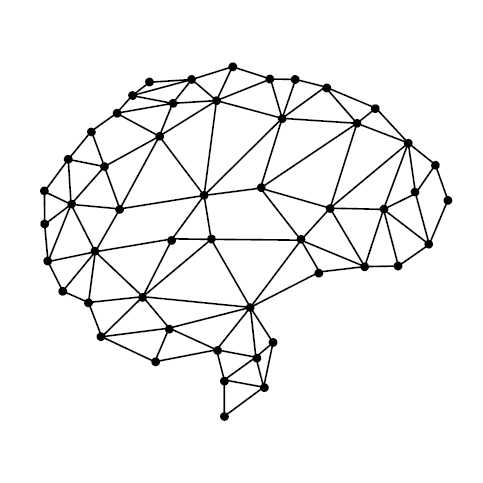The Black Belt in Thinking Podcast

Black Belt in Thinking Podcast host Peter Cronin talks about different thinking processes that have helped people all around the world solve their problems. Business, personal, leadership, whatever the problem may be, the BBIT Podcast gives a fresh outlook on problem solving, interviewing some of the world leaders in different approaches and problem solving tools.
Black Belt in Thinking Podcast host Peter Cronin talks about different thinking processes that have helped people all around the world solve their problems. Business, personal, leadership, whatever the problem may be, the BBIT Podcast gives a fresh outlook on problem solving, interviewing some of the world leaders in different approaches and problem solving tools.
Episodes
Episodes



Thursday Oct 27, 2022
The Five Why’s Thinking Process
Thursday Oct 27, 2022
Thursday Oct 27, 2022
This week Peter and Mirta discuss the 5 Why’s thinking process!
Sakichi Toyoda, the Japanese industrialist, inventor, and founder of Toyota Industries, developed the 5 Whys technique in the 1930s and Toyota still uses it to solve problems today!
The Five Why’s is most effective when the answers come from people who have hands-on experience of the process or problem in question.
The method is remarkably simple: when a problem occurs, you drill down to its root cause by asking "Why?" five times. Then, when a counter-measure becomes apparent, you follow it through to prevent the issue from recurring.
Listen in to this episode to find out the benefits, the draw backs and some tips and tricks about some ways that you can use the 5 Why’s in your own problem solving situations.
The hosts also love to hear any feedback or answer questions you may have, so feel free to send them a message at peter.cronin@viago.com.au or mirta@viago.co.nz!



Wednesday Oct 12, 2022
The Power of One Liners - Peter Cronin and Mirta Fagundes
Wednesday Oct 12, 2022
Wednesday Oct 12, 2022
The Power of One-Liners
This week Peter and Mirta discuss one-liners; simple phrases that encapsulate a more complex concept.
A lot of the time we may agree on a solution or a course of action, but the day-to-day grind gets in the way, and old habits kick in. Before soon, we end up doing things that end up compromising that agreement.
This is where one-liners come in. They are short and punchy phrases that are repeated and act as pattern interrupts in situations where someone is going against the agreed course of action.
For example, even if we all agree we will not re-schedule the jobs once the Sprint starts, someone inevitably has a job they want to squeeze in mid-Sprint. When this happens, a simple "shoving it in won't make it come out" can stop the behavior without the need for confrontational "telling off" or long-winded explanations as to why we shouldn't overload the developers.
Find out more about one-liners, and how you can use them in your professional and personal life to keep on track!
The hosts also love to hear any feedback or answer questions you may have, so feel free to send them a message at peter.cronin@viago.com.au or mirta@viago.co.nz!



Wednesday Sep 21, 2022
When Fluency is Better than Knowledge - Peter Cronin & Peter Thorby
Wednesday Sep 21, 2022
Wednesday Sep 21, 2022
Is Fluency better than knowledge?
We learn a lot of things at school, but we often forget a lot of this information/learnings because we don't use them. How often have you had to use long division in your adult life?
When people have to deliver or provide and answer and they don't have the muscle memory/fluency, they they start guessing. Then often the person on the receiving end takes the result as true, as they don't have the fluency either.
So how do we build the fluency in the skills we want to get better at?
Tune in to this episode to find out how to build your own fluency or the fluency of your team!
If you’re enjoying the series and getting value out of the episodes please remember to share them around!
The hosts also love to hear any feedback or answer questions you may have, so feel free to send them a message at peter.cronin@viago.com.au or mirta@viago.co.nz!



Wednesday Sep 07, 2022
Behaviour Forcing - Peter Cronin and Mirta Fagundes
Wednesday Sep 07, 2022
Wednesday Sep 07, 2022
On this episode Peter and Mirta discuss Behavior Forcing or Poka-yoke (Mistake Proofing), which is the use of any automatic device or method that either makes it impossible for an error to occur or makes the error immediately obvious once it has occurred.
So in a system where a mistake is happening time and time again, we introduce a forcing function which prevents people making that mistake. For example, the noise your makes in your car when you forget to put your seatbelt on. Obviously you can continue to drive the car with the noise, however the annoying dinging noise is there to help shape the behavior.
If you’re enjoying the series and getting value out of the episodes please remember to share them around!
The hosts also love to hear any feedback or answer questions you may have, so feel free to send them a message at peter.cronin@viago.com.au or mirta@viago.co.nz!



Wednesday Aug 24, 2022
Cognitive Bias Episode 11 - Hindsight Bias
Wednesday Aug 24, 2022
Wednesday Aug 24, 2022
Peter and Mirta's series on cognitive biases continues!
There are a few different cognitive biases that have a powerful influence on how you think, how you feel, and how you behave. Each episode will touch on a different bias. So make sure you tune in to them all!
This week Peter and Mirta talk about the Hindsight Bias. Hindsight bias is our tendency to look back at an event that we could not predict at the time and think the outcome was easily predictable. It is also called the 'knew-it-all-along' effect.
For example, after attending a sports game, you might insist that you knew that the winning team was going to win beforehand.
If you’re enjoying the series and getting value out of the episodes please remember to share them around!
The hosts also love to hear any feedback or answer questions you may have, so feel free to send them a message at peter.cronin@viago.com.au or mirta@viago.co.nz!



Thursday Aug 11, 2022
Cognitive Bias Episode 10 - Cognitive Dissonance
Thursday Aug 11, 2022
Thursday Aug 11, 2022
Peter and Mirta's series on cognitive biases continues!
There are a few different cognitive biases that have a powerful influence on how you think, how you feel, and how you behave. Each episode will touch on a different bias. So make sure you tune in to them all!
This week Peter and Mirta talk about the Cognitive Dissonance. Cognitive Dissonance is the mental state (and discomfort) we experience when we perceive two opposing or contradictory beliefs as both being true.
For example, you may agree that a) smoking is bad for you (because it causes cancer) and b) smoking is good for you (because it relaxes you). These seemingly contradictory beliefs cannot exist at the same time, so you opt to rationalize one over the other.
If you’re enjoying the series and getting value out of the episodes please remember to share them around!
The hosts also love to hear any feedback or answer questions you may have, so feel free to send them a message at peter.cronin@viago.com.au or mirta@viago.co.nz!



Thursday Jul 28, 2022
Cognitive Bias Episode 9 - Recency bias
Thursday Jul 28, 2022
Thursday Jul 28, 2022
Peter and Mirta's series on cognitive biases continues!
There are a few different cognitive biases that have a powerful influence on how you think, how you feel, and how you behave. Each episode will touch on a different bias. So make sure you tune in to them all!
This week Peter and Mirta talk about the Recency bias. Recency bias favours recent events over historic ones. Recency bias gives greater importance to the most recent event, such as the final lawyer's closing argument a jury hears before being dismissed to deliberate.
Recency bias should not be confused with anchoring or confirmation bias (which you can learn about in earlier podcasts). It commonly appears in employee evaluations, as a distortion in favour of recently completed activities or recollections.
If you’re enjoying the series and getting value out of the episodes please remember to share them around!
The hosts also love to hear any feedback or answer questions you may have, so feel free to send them a message at peter.cronin@viago.com.au or mirta@viago.co.nz!



Wednesday Jul 13, 2022
Bias in house buying with Rhiannan Jenkins
Wednesday Jul 13, 2022
Wednesday Jul 13, 2022
In this episode Peter talks with Sydney buyers agent Rhiannan Jenkins about the biases in house buying and how learning about these bias could help you in the future.
Many of us are convinced we're logical. But our property buying and selling decisions are rooted in psychological biases, many of which we're not even aware of.
Rhiannan points out our price perceptions can be framed by messages from the media about pricing. How a price-related frame might work is that as soon as the market levels off we frame the purchase as if it's suddenly a bargain.
Listen in to find out what other biases we often don't realise we have when in the process of buying or selling a house.
If you find value in the episode or any you have listened to in the past, please recommend and share with others so that we can continue to provide this content for you.


